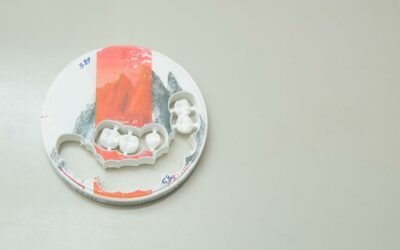Is your air purifier driving you crazy with its high pitched noise? Don't worry, we've got you covered.
In this article, we will help you:
- Identify the common causes of this annoying problem
- Provide troubleshooting tips to fix it
- Guide you through maintenance and cleaning techniques that can reduce the noise
With our expertise and technical knowledge, you'll be able to enjoy a noise-free environment in no time.
So, let's get started and silence that pesky air purifier!
Key Takeaways
- Loose fan blades, dirty or clogged filters, malfunctioning motor or bearings, and misaligned or faulty fans are common causes of high pitched noise in air purifiers.
- To identify the source of the noise, inspect fan blades and motor for damage, check filters for debris or obstructions, examine housing for loose panels or screws, and look for signs of vibrations or misalignment.
- Troubleshooting tips to fix noise issues include cleaning fan blades, replacing dirty filters, lubricating the motor and bearings, ensuring stable placement of the air purifier, and avoiding obstructions to airflow.
- Maintenance and cleaning techniques for noise reduction in air purifiers involve regularly cleaning or replacing filters, gently cleaning fan blades, inspecting and tightening components, following manufacturer's instructions for maintenance, and ensuring smooth airflow.
Common Causes of High Pitched Noise
If your air purifier is making a high pitched noise, several common causes could be to blame. It's important to identify and address these issues to ensure optimal performance and a peaceful environment.
One possible cause of the high pitched noise is a loose fan blade. Over time, the fan blade can become dislodged or misaligned, resulting in a whistling or squeaking sound. To fix this, simply tighten the screws holding the fan blade in place.
Another potential culprit is a dirty or clogged filter. When the filter is obstructed with dust and debris, the air flow is restricted, causing the motor to strain and produce a high pitched noise. Regularly cleaning or replacing the filter can help alleviate this issue.
Additionally, a malfunctioning motor or bearings can be the source of the noise. If you suspect this is the case, it's best to consult a professional technician to properly diagnose and repair the problem.
How to Identify the Source of the Noise
To identify the source of the high pitched noise in your air purifier, you can perform a simple inspection of its components. By following these steps, you'll be able to pinpoint the exact source of the noise and take appropriate action:
- Inspect the fan: Start by examining the fan blades and motor. Look for any signs of damage, such as bent blades or loose connections. A misaligned or faulty fan can often be the culprit of a high pitched noise.
- Check the filters: Remove the filters and inspect them closely. Look for any debris or obstructions that may be causing the noise. Additionally, check if the filters are properly seated and securely in place. Loose or dirty filters can create unwanted noise.
- Examine the housing: Inspect the housing of the air purifier for any loose panels or screws. A loose housing can cause vibrations, resulting in a high pitched noise. Ensure that all components are tightly secured.
Troubleshooting Tips to Fix the Noise Issue
To fix the high pitched noise issue in your air purifier, follow these troubleshooting tips.
- First, check the fan blades to ensure they're clean and free from any debris. Use a soft brush or cloth to gently remove any dust or dirt that may have accumulated on the blades.
- Next, inspect the air filters for dirt or clogs. If the filters are dirty, clean or replace them according to the manufacturer's instructions.
If the noise persists, examine the motor and bearings. Over time, these components can wear out and cause excessive noise. Lubricate the motor and bearings with a few drops of oil to reduce friction and noise. Refer to the user manual for guidance on the type of oil to use and the proper lubrication technique.
Additionally, check the placement of your air purifier. Ensure that it's placed on a stable and level surface. Uneven surfaces can cause vibrations and noise. Avoid placing the purifier near walls or other objects that could obstruct the airflow and cause turbulence.
If none of these troubleshooting tips resolve the noise issue, it may be necessary to contact the manufacturer for further assistance or consider professional repair services.
Maintenance and Cleaning Techniques for Noise Reduction
To reduce noise in your air purifier, regular maintenance and cleaning are essential. Here are three maintenance and cleaning techniques that can help reduce the high pitched noise:
- Clean or Replace Filters: Dust and dirt can accumulate on the filters, causing them to clog and restrict airflow. This can result in increased fan noise. Regularly clean or replace the filters as recommended by the manufacturer to ensure smooth airflow and reduce noise.
- Check Fan Blades: Over time, dust and debris can build up on the fan blades, causing imbalance and noisy operation. Inspect the fan blades and gently clean them using a soft brush or cloth to remove any accumulated dirt. This will help maintain proper balance and reduce noise.
- Inspect and Tighten Components: Loose components, such as screws or panels, can vibrate and create noise. Regularly inspect the air purifier for any loose parts and tighten them securely. This will help minimize vibrations and reduce noise levels.
By following these maintenance and cleaning techniques, you can ensure that your air purifier operates quietly and efficiently, providing you with clean and fresh air without any annoying high pitched noises.
Remember to consult the manufacturer's instructions for specific maintenance guidelines tailored to your air purifier model.
When to Seek Professional Help for Noisy Air Purifiers
If you have followed the maintenance and cleaning techniques mentioned earlier and your air purifier continues to emit a high pitched noise, it may be time to seek professional help. While some minor noises are normal, persistent high pitched sounds could indicate a more severe issue that requires expert attention.
One possible reason for the high pitched noise is a faulty motor or fan. Over time, these components can wear out or become misaligned, causing them to produce unusual sounds. A professional technician will be able to assess the condition of the motor and fan, and determine if they need to be repaired or replaced.
Another potential cause of the noise could be a problem with the air purifier's internal components or wiring. If there's a loose connection or a damaged part, it can lead to vibrations and strange noises. Identifying and resolving these issues requires specialized knowledge and expertise.
In some cases, the noise may be a symptom of a more complex problem that can't be easily diagnosed or fixed without professional assistance. By seeking help from an experienced technician, you can ensure that your air purifier is thoroughly examined and any underlying issues are addressed.
Conclusion
In conclusion, identifying and addressing the source of a high-pitched noise in an air purifier is crucial for noise reduction.
By troubleshooting the issue and performing regular maintenance and cleaning techniques, you can effectively reduce the noise.
However, if the problem persists, it's recommended to seek professional help.
With expertise, technical knowledge, and attention to detail, you can ensure a quieter and more efficient air purifier for a healthier living environment.






0 Comments